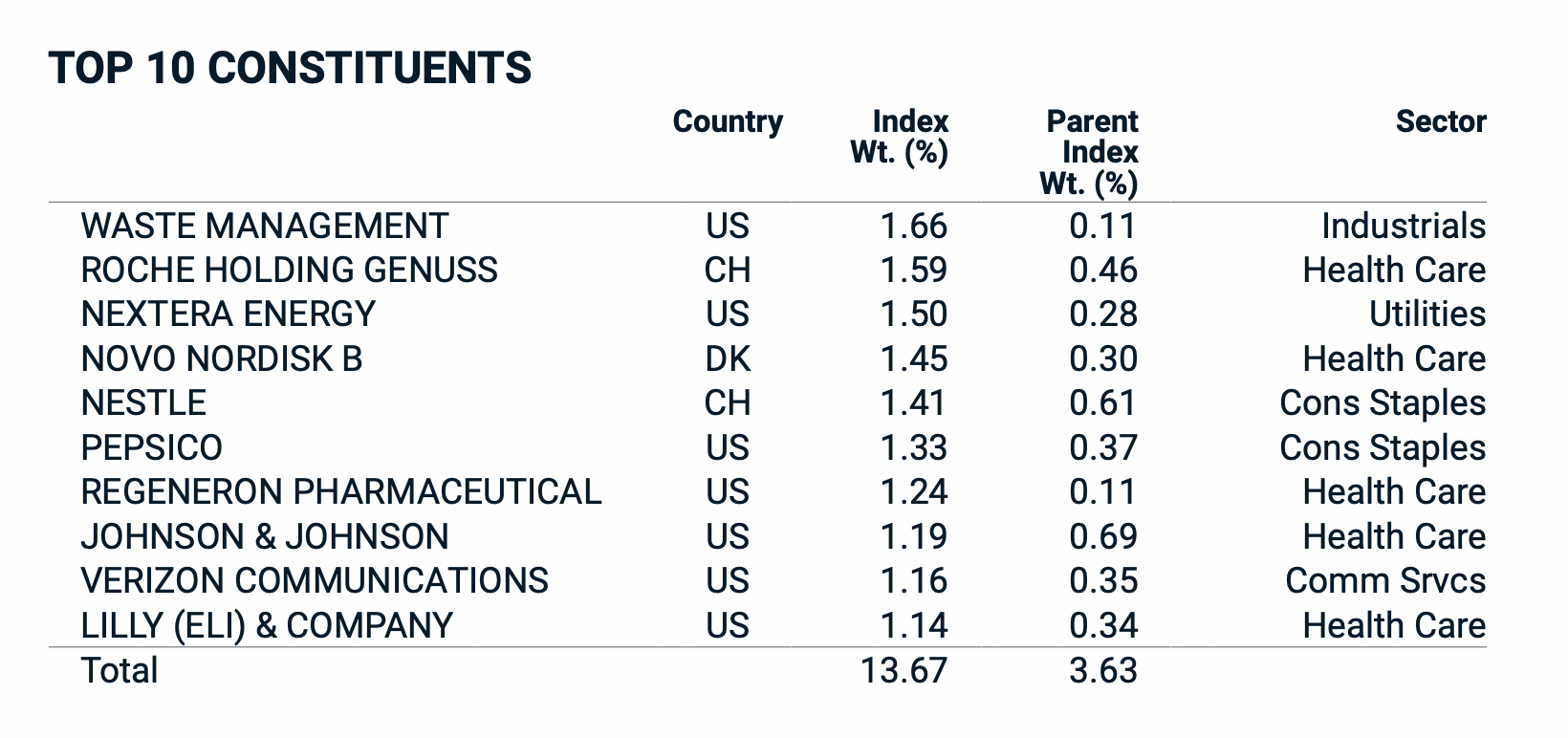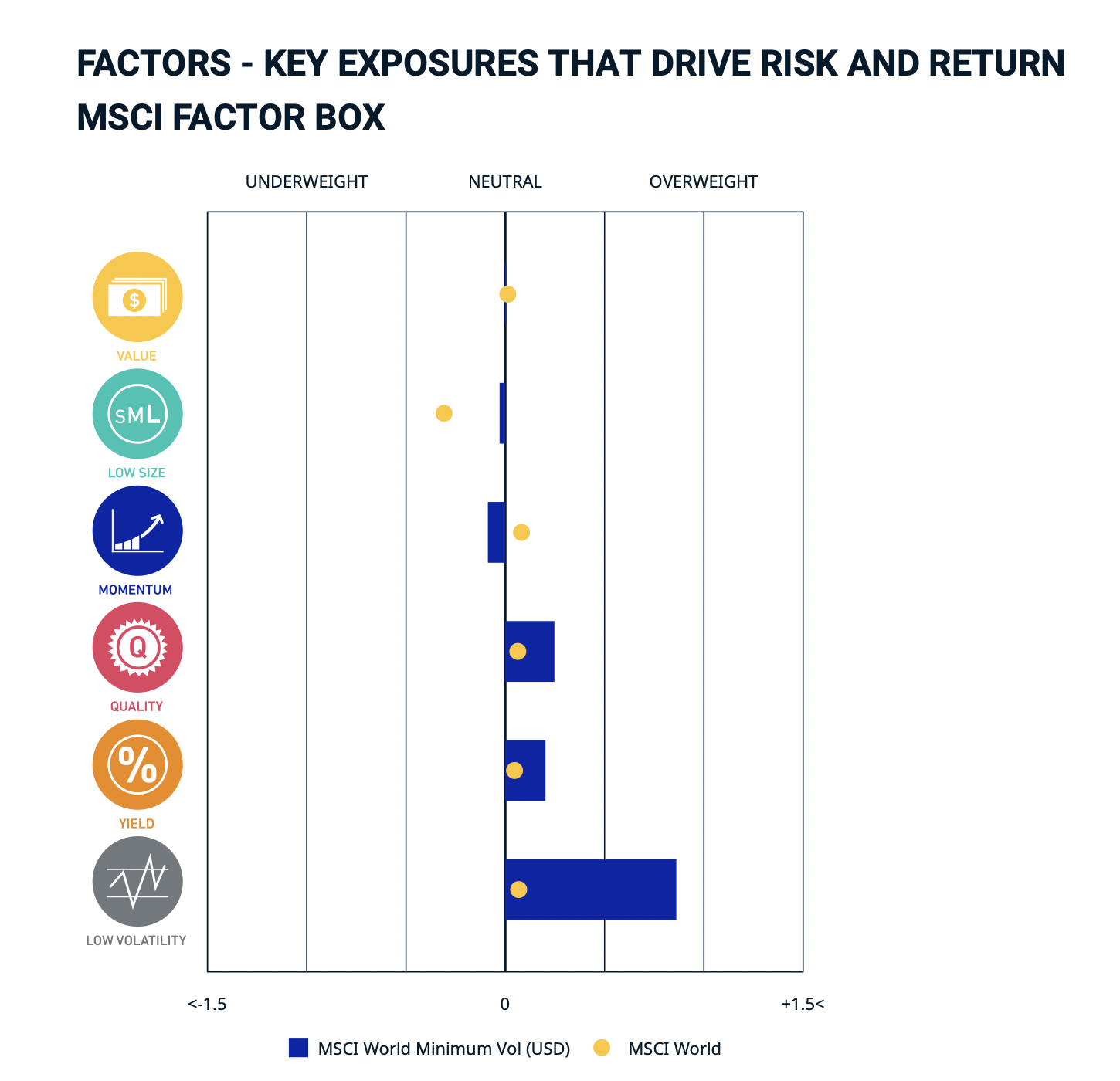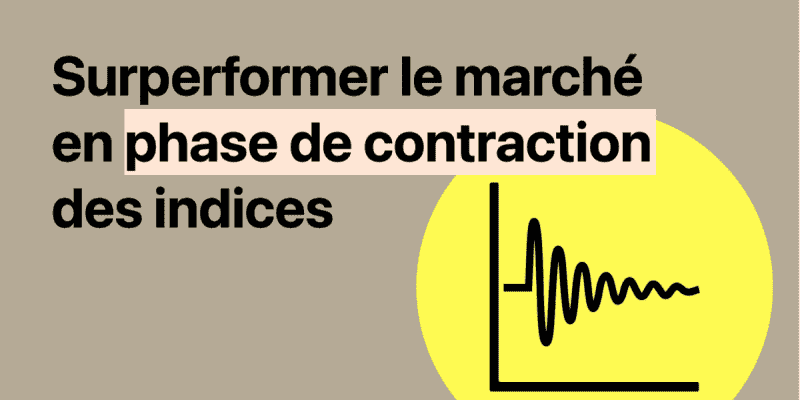The MSCI World Minimum Volatility index is built around two issues. Provide the performance of the world’s largest stock market capitalizations respecting criteria of low residual volatility on the one hand and low beta on the other hand.
The residual volatility is calculated from the volatility of the residual returns from the regression of the historical beta (historical sigma), the volatility of the excess returns during the past year (daily standard deviation) as well as the cumulative excess logarithmic return on the last months (cumulative range). Beta is calculated relative to the slope coefficient of a time-series regression of excess returns on stocks, versus excess returns weighted by capitalization. I’ll spare you the more difficult but necessary secondary factors to create this index such as the risk of idiosyncratic hydride tail covariance, it’s a gift.
Well, this all sounds rather technical, but the result is easy to understand, you will see. We seek a diversified investment in equities to take advantage of the long-term compound returns of the MSCI World while limiting the downside risk of the more volatile stocks.
And at this little game, the MSCI World Minimum Volatility Index is pretty good. It outperforms its big brother the MSCI World index during times of crisis. In 2008, it recorded a decrease of -29% against -40% for the MSCI World. In 2018, he made -1.4% against -8.2% for his big brother.
Source: MSCI
You only have to look at the top ten positions to understand the robustness of this index in the downward phases.

Source: MSCI
It is overweighting healthcare (18.50% of the index) and consumer staples (12.75%) stocks compared to MSCI World. It adopts a factor bias by favoring low volatility (its primary focus), yield, quality and large cap stocks.

Source: MSCI
Many ETFs replicating this strategy exist but the most relevant in my opinion by its assets under management and the reliability of its issuer is the iShares Edge MSCI World Minimum Volatility UCITS ETF (ISIN: IE00B8FHGS14) from BlackRock. With $ 4.5 billion in assets under management, 0.30% contained management fees, and a track record since 2012, it makes an attractive candidate for anyone looking for a low volatility global ETF.
